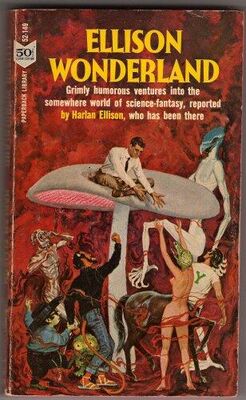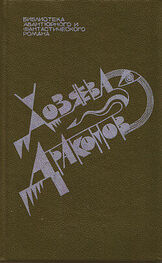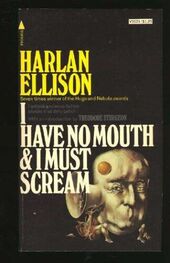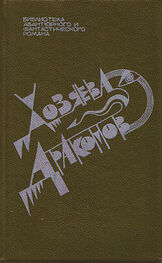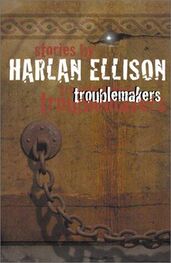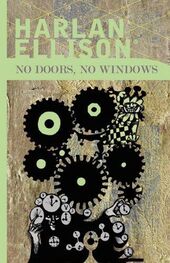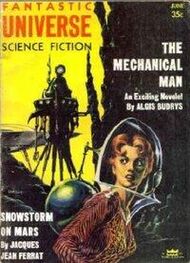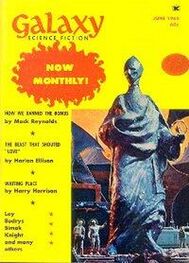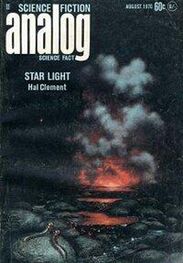In Lonely Lands
He clasps the crag with crooked hands;
Close to the sun in lonely lands,
Ring’d with the azure world he stands.
ALFRED, LORD TENNYSON
Pederson knew night was falling over Syrtis Major; blind, still he knew the Martian night had arrived; the harp crickets had come out. The halo of sun’s warmth that had kept him golden through the long day had dissipated, and he could feel the chill of the darkness now. Despite his blindness there was an appreciable changing in the shadows that lived where once, long ago, there had been sight.
“Pretrie,” he called into the hush, and the answering echoes from the moon valleys answered and answered, Pretrie, Pretrie, Pretrie, down and down, almost to the foot of the small mountain.
“I’m here, Pederson old man. What do you want of me?”
Pederson relaxed in the pneumorack. He had been tense for some time, waiting. Now he relaxed. “Have you been to the temple?”
“I was there. I prayed for many turnings, through three colors.”
It had been many years since Pederson had seen colors. But he knew the Martian’s religion was strong and stable because of colors. “ And what did the blessed Jilka foretell, Pretrie?”
“Tomorrow will be cupped in the memory of today. And other things.” The silken overtones of the alien’s voice were soothing. Though Pederson had never seen the tall, utterly ancient Jilkite, he had passed his arthritic, spatulate fingers over the alien’s hairless, teardrop head, had seen by feeling the deep round sockets where eyes glowed, the pug nose, the thin, lipless gash that was mouth. Pederson knew this face as he knew his own, with its wrinkles and sags and protuberances. He knew the Jilkite was so old no man could estimate it in Earth years.
“Do you hear the Gray Man coming yet?”
Pretrie sighed, a lung-deep sigh, and Pederson could hear the inevitable crackling of bones as the alien hunkered down beside the old man’s pneumorack.
“He comes but slowly, old man. But he comes. Have patience.”
“Patience,” Pederson chuckled ruminatively. “I got that, Pretrie. I got that and that’s about all. I used to have time, too, but now that’s about gone. You say he’s coming?”
“Coming, old man. Time. Just time.”
“How are the blue shadows, Pretrie?”
“Thick as fur in the moon valleys, old man. Night is coming.”
“Are the moons out?”
There was a breathing through wide nostrils—ritualistically slit nostrils—and the alien replied, “None yet this night. Tayseff and Teei are below the horizon. It grows dark swiftly. Perhaps this night, old man.”
“Perhaps,” Pederson agreed.
“Have patience.”
Pederson had not always had patience. As a young man, the blood warm in him, he had fought with his Presby-Baptist father, and taken to space. He had not believed in Heaven, Hell, and the accompanying rigors of the All-Church. Not then. Later, but not then.
To space he had gone, and the years had been good to him. He had aged slowly, healthily, as men do in the dark places between dirt. Yet he had seen the death, and the men who had died believing, the men who had died not believing. And with time had come the realization that he was alone, and that some day, one day, the Gray Man would come for him.
He was always alone, and in his loneliness, when the time came that he could no longer tool the great ships through the star-spaces, he went away.
He went away, searching for a home, and finally came full-circle to the first world he had known; came home to Mars, where he had been young, where his dreams had been born; Mars, for home is always where a man has been young and happy. Came home where the days were warm and the nights were mild. Came home where men had passed but somehow, miraculously, had not sunk their steel and concrete roots. Came home to a home that had changed not at all since he’d been young. And it was time. For blindness had found him, and the slowness that forewarned him of the Gray Man’s visit. Blindness from too many glasses of vik and Scotch, from too much hard radiation, from too many years of squinting into the vastness. Blind, and unable to earn his keep.
So alone, he had come home; as the bird finds the tree, as the winter-starved deer finds the last bit of bark, as the river finds the sea. He had come there to wait for the Gray Man, and it was there that the Jilkite Pretrie had found him.
They sat together, silently, on the porch with many things unsaid, yet passing between them.
“Pretrie?”
“Old man.”
“I never asked you what you get out of this. I mean—”
Pretrie reached and the sound of his claw tapping the formica tabletop came to Pederson. Then the alien was pressing a bulb of water-diluted vik into his hand. “I know what you mean, old man. I have been with you close on two harvestings. I am here. Does that not satisfy you?”
Two harvestings. Equivalent to four years Earth-time, Pederson knew. The Jilkite had come out of the dawn one day, and stayed to serve the old blind man. Pederson had never questioned it. One day he was struggling with the coffee pot (he dearly loved old-fashion brewed coffee and scorned the use of the coffee briquettes) and the heat controls on the hutch…the next he had an undemanding, unselfish manservant who catered with dignity and regard to his every desire. It had been a companionable relationship; he had made no great demands on Pretrie, and the alien had asked nothing in return.
He was in no position to wonder or question.
Though he could hear Pretrie’s brothers in the chest-high floss brakes at harvesting time, still the Jilkite never wandered far from the hutch.
Now, it was nearing its end.
“It has been easier with you. I—uh—thanks, Pretrie,” the old man felt the need to say it clearly, without embroidery.
A soft grunt of acknowledgment. “I thank you for allowing me to remain with you, old man, Pederson,” the Jilkite answered softly.
A spot of cool touched Pederson’s cheek. At first he thought it was rain, but no more came, and he asked, “What was that?”
The Jilkite shifted—with what Pederson took to be discomfort—and answered, “ A custom of my race.” “What?” Pederson persisted.
“A tear, old man. A tear from my eye to your body.”
“Hey, look…” he began, trying to convey his feelings, and realizing look was the wrong word. He stumbled on, an emotion coming to him he had long thought dead inside himself. “You don’t have to be—uh—you know, sad, Pretrie. I’ve lived a good life. The Gray Man doesn’t scare me.” His voice was brave, but it cracked with the age in the cords.
“My race does not know sadness, Pederson. We know gratitude and companionship and beauty. But not sadness. That is a serious lack, so you have told me, but we do not yearn after the dark and the lost. My tear is a thank you for your kindness.”
“Kindness?”
“For allowing me to remain with you.”
The old man subsided then, waiting. He did not understand. But the alien had found him, and the presence of Pretrie had made things easier for him in these last years. He was grateful, and wise enough to remain silent. They sat there thinking their own thoughts, and Pederson’s mind winnowed the wheat of incidents from the chaff of life spent.
He recalled the days alone in the great ships, and how he had at first laughed to think of his father’s religion, his father’s words about loneliness: “No man walks the road without companionship, Will,” his father had said. He had laughed, declaring he was a loner, but now, with the unnamable warmth and presence of the alien here beside him, he knew the truth.
Читать дальше